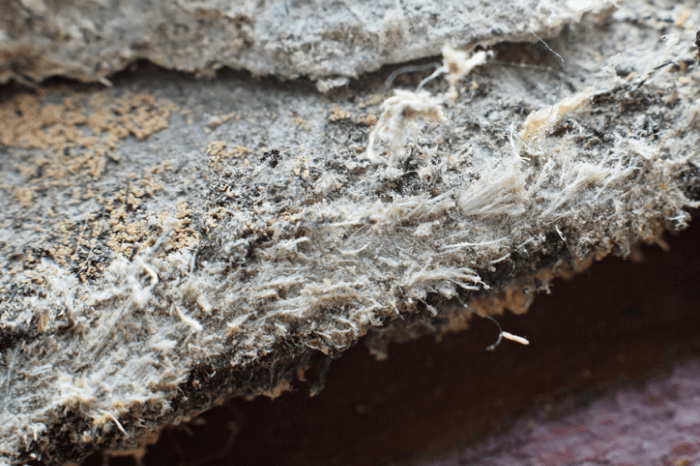Get A Free Legal Consultation
- We fight to maximize your results
- Many clients get results in as few as 90 days
- No out-of-pocket costs for you or your family






Stage 4 pleural mesothelioma is the most advanced stage of this asbestos-caused cancer that affects the pleura (lining of the lungs). By this stage, cancer cells have spread to distant organs and lymph nodes, making the life expectancy 12 months or less.
If you or a loved one has received a stage 4 mesothelioma diagnosis, you may be able to pursue financial compensation from those responsible for your cancer.
Call (800) 326-8900 right now to see if our mesothelioma attorneys can help your family.
In the tumor-node-metastasis (TNM) cancer staging system, stage 4 mesothelioma is the fourth and final stage of this cancer.
Pleural mesothelioma is most commonly diagnosed in the later stages. By stage 4, distant metastasis (cancer spread) has occurred, and tumors may form in other areas of the body.
By this stage, cancer cells may have reached organs like the:
Although stage 4 pleural mesothelioma is incurable, treatments may improve patients’ life spans and quality of life.
Mesothelioma is a rare and aggressive cancer caused by asbestos exposure.
The disease can take 10-50 years to develop after someone is first exposed to asbestos.
Stage 4 mesothelioma is the most advanced stage of this cancer. Tumors that first developed in the lining of one organ have already spread to other parts of the body.
Unfortunately, the average life expectancy for stage 4 mesothelioma is only 12 months.
While life-extending surgeries are usually no longer an option at this stage, chemotherapy may still help extend survival and improve a patient’s quality of life.
At Simmons Hanly Conroy, we understand the devastating impact mesothelioma has on patients and their families.
As a leading national asbestos law firm, we have helped thousands of mesothelioma patients and their loved ones secure compensation that helped them afford life-extending medical care.
If you or a loved one has been diagnosed with mesothelioma, call (800) 326-8900 for a free legal consultation now to see if we can help you too.


Stage 4 pleural mesothelioma is caused by exposure to asbestos. When asbestos fibers are inhaled or swallowed, they may enter the body and become trapped in the linings of major organs (like the lungs).
Asbestos fibers are very durable, and the body can’t always break them down. Over time, healthy cells become inflamed and scarred.
This long-term damage can cause mesothelioma to form 10-50 years after exposure.
Symptoms of stage 4 pleural mesothelioma are more noticeable when compared to early-stage cases.
Common stage 4 mesothelioma symptoms include:
If you ever worked with or around asbestos-containing products and have any of the symptoms listed above, see a doctor as soon as possible.
Call (800) 326-8900 now to learn more.




On average, the mesothelioma life expectancy at stage 4 is just 12 months, as a report from Frontiers in Oncology notes. That said, early diagnosis and treatment may be able to extend your life expectancy.
Survival rate measures the percentage of patients still alive a certain amount of time after diagnosis. The 5-year mesothelioma stage 4 survival rate is 7%, according to the American Cancer Society (ACS).
However, stage 4 mesothelioma cancer survival rates may vary based on a number of factors including where the cancer spread to, a patient’s overall health, the types of cells that make up a cancer tumor and more.


Because this type of cancer has no cure and tumors have often spread through the body, treatment options for stage 4 mesothelioma are palliative (pain-relieving). The main goal will be to help patients live as comfortably as possible.


Commonly used stage 4 mesothelioma palliative treatments include:


Surgery involves removing cancerous tumors from your body. Major pleural mesothelioma surgeries are not typically used for stage 4 mesothelioma. Surgery becomes less effective when the cancer is more widespread.
That said, minor surgeries can be performed to lessen the size of tumors and ease symptoms. For example, a partial pleurectomy involves taking out part of the lung lining and cancer tumors.


Doctors may use intravenous chemotherapy drugs to extend life expectancy and improve the quality of life. Common chemotherapy drugs for stage 4 mesothelioma patients include Alimta® (pemetrexed) and cisplatin.
Chemotherapy may be given alongside other treatments like surgery. For example, doctors can use hyperthermic intrathoracic chemotherapy (HITHOC) to kill leftover cancer cells.


Immunotherapy drugs help the body to find and destroy mesothelioma cells, which could otherwise escape detection and spread rapidly.
There are several types of immunotherapy, including:


Targeted therapies use drugs to target specific proteins and genes that help mesothelioma cells live and grow. They can target cells related to cancer growth, such as blood vessel cells, or change the environment mesothelioma cells grow in.
Monoclonal antibodies are a type of targeted therapy. Through this treatment, special immune proteins are infused into the body. The proteins can attach to specific cells in the body (like mesothelioma cells) to help fight cancer.


Mesothelioma alternative treatments are not intended to treat or cure the cancer. However, they can reduce symptoms and side effects. They can also improve mental well-being.
Common mesothelioma alternative treatments include:
Pleural mesothelioma survivor Art Putt used natural remedies to help in his battle with mesothelioma. Through a stomach tube, Art ate a blend of asparagus, beetroot powder, cottage cheese and several essential oils.
“At one time, doctors told me I’d never eat solid food again,” Art explains, “but we showed them wrong.” He’s now been a mesothelioma survivor for over 5 years.
Treatment for mesothelioma, even in its earliest stages, can amount to over $400,000 a year.
Call (800) 326-8900 now to see if you qualify for compensation that can help cover these costs.
A stage 4 mesothelioma diagnosis can be very scary, but Simmons Hanly Conroy stands ready to assist you.
We are a mesothelioma law firm with more than 20 years of experience helping victims of asbestos exposure fight for the justice and compensation they deserve.
Our mesothelioma lawyers have helped families in all 50 states pursue financial payouts from negligent asbestos companies. These manufacturers knew asbestos was dangerous but used it anyway — without disclosing the risks.
To date, we’ve secured over $9.3 billion for mesothelioma patients.
Get free legal consultation to see if our stage 4 mesothelioma lawyers can help you and your family.


In August 2019, John Stahl was diagnosed with stage 4 mesothelioma after working in the construction business for more than 40 years.
John was regularly exposed to asbestos as he worked, but he never knew the risks — not until it was too late.
“Asbestos is poison, and it’s a prescription for death.”
– Dee, John’s Wife
After receiving his stage 4 mesothelioma diagnosis, John and his wife Dee turned to Simmons Hanly Conroy. With the firm’s help, John secured financial compensation from the asbestos companies responsible.
“Hiring Simmons Hanly Conroy was the smartest thing we ever did.”
– John, Mesothelioma Patient & Firm Client
Thanks to the treatments he received, John is still alive today — proving that a stage 4 mesothelioma diagnosis is not always a death sentence.


The average life expectancy for stage 4 mesothelioma patients is 12 months. However, this is only an estimate. Roughly 7% of advanced-stage mesothelioma patients survive 5 years or more.
Several factors affect your pleural mesothelioma stage 4 life expectancy, such as your age, overall health, treatment options and mesothelioma cell type.
Yes. In fact, several of our stage 4 clients have actually become long-term mesothelioma survivors, thanks to the treatment they were able to receive with the compensation we secured for them.
For example, John Stahl is still alive nearly 4 years after being diagnosed with stage 4 mesothelioma (as of July 2023).
On X-rays or other imaging scans of stage 4 mesothelioma, the cancer may be seen throughout the body.
At stage 4, mesothelioma is not only in the lining of the lung. The cancer has spread to distant parts of the body, which is why stage 4 is sometimes also called distant mesothelioma.
The mesothelioma symptoms at stage 4 may include chest pain, difficulty breathing or swallowing, fatigue, fluid buildup in the lungs, weight loss and more.
Call (800) 326-8900 now for free help understanding your symptoms. We have registered nurses on staff who can help you find medical care and understand your options.
Because mesothelioma tumors have already spread to distant lymph nodes and body parts, patients generally have a poor mesothelioma prognosis at stage 4.
That said, a stage 4 mesothelioma prognosis can be affected by factors like:
No. While stage 4 pleural mesothelioma forms in the lining of the lungs, it’s not considered to be a type of lung cancer because the tumors don’t start in the lungs.
However, pleural mesothelioma at stage 4 might have spread into the lung.
No. Peritoneal mesothelioma doesn’t have an official staging system like pleural mesothelioma.
However, this type of cancer is generally broken down into two categories:
In late-stage peritoneal mesothelioma, the cancer has spread to other organs and areas of the body, making treatment less effective.
There are three types of mesothelioma cells. Depending on the type present, some stage 4 mesothelioma patients may have more or less time to live: